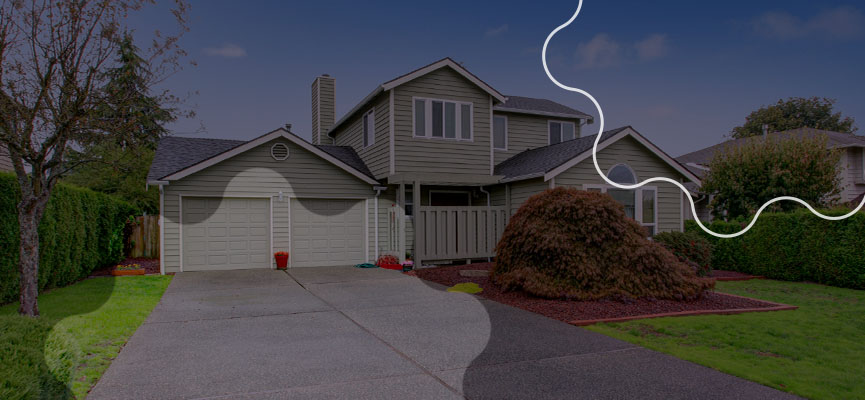
Your driveway acts as a designated place to park your vehicles, keeping them out of the street and out of the way. While many kinds of driveways exist, concrete is the most popular style. If you have a concrete driveway and want to increase its longevity, sealing it is your best solution.
Use this guide to learn the steps for sealing a concrete driveway and develop an understanding of why this area is an essential part of your home.
Concrete is a porous material, meaning liquids like water can seep into it, so sealing it is crucial to prevent liquids from entering the concrete. When water and other liquids permeate into concrete and build up, they can weaken the material's bonds and start wearing away at the slab. Material breakdown due to water makes the concrete less stable and could result in poor structural integrity. Water in concrete can also encourage and contribute to mold and bacteria growth within the slabs, making the driveway more vulnerable to issues like cracks or shifting.
To prevent leaks and water permeation in concrete driveways, professionals apply a sealant on top after the concrete has been set and cured. Besides protecting your driveway's internal integrity, sealing the concrete also safeguards it from:
Adding a layer of protection to your concrete driveway by sealing it will help you maintain its longevity and enjoy its benefits for a long time.
You can seal your concrete driveway by yourself, but you must educate yourself on the entire process to ensure you do it correctly. Often, it's better to have professionals handle the sealing because they have the proper knowledge, expertise and experience to complete the process efficiently and safely.
If you try sealing your concrete driveway without professional training or experience, potential issues could complicate the process, including:
Ultimately, it's best to leave concrete driveway sealing to the professionals.
Before sealing a driveway, you must prepare for the process. Doing the following can maximize your time and efforts.
Cleaning the driveway is crucial prior to sealing it. A deep cleaning of your driveway gets it ready for the sealer to adhere to the concrete. Pressure washing is suitable for ensuring the debris, dirt and grime are gone. Hiring a professional pressure washing team to deep clean your concrete driveway ensures the surface is ready for sealing.
If there are any cracks or holes in the concrete, you should also get them patched before having your driveway sealed.
When deciding on what day or week to complete the driveway cleaning and sealing, it's vital to check the weather forecast. While you can't control the weather, you can be aware of the forecast and plan accordingly. Most sealers work best in mild or warmer temperatures, not falling below 50 degrees or exceeding 80 degrees Fahrenheit. Additionally, sealers and the rain don't mix. If it rains before the sealer can fully dry, the product will wash away and leave your driveway open to the elements.
Schedule your professional concrete cleaning and sealing for a week when the weather is supposed to be nice so your driveway has a better chance of getting a good seal the first time.
Once the sealer is on, it can take upward of 48 hours for it to completely dry. Ensure you find other places to park your vehicles because your driveway will be out of commission until the sealer dries.
When it's time to seal or reseal your concrete driveway, following proper protocols can set you or your hired professional up for success. Once the concrete is clean, it must be dry before a sealer can go on it.
To seal a concrete driveway, the person completing the job will use their equipment, such as rollers, sprayers or brushes, to apply the sealer. The best method depends on the type of sealer used. Whether it's the first time or a reseal, applying two thin layers of the sealant is best to get maximum even coverage and durability.
The general process for sealing a concrete driveway includes the following:
After your concrete driveway is sealed, you can use it freely again. You know the sealant works when you see water beading up on top of the concrete instead of going into the ground. After the initial sealing, you can wait two to three years before resealing it.
Concrete cleaning and sealing will keep your driveway looking its best and functioning the way it should for a long time. When it's time to take care of your concrete driveway with professional driveway cleaning and sealing, you have a guy, My Guy! My Guy is here to extend a helping hand whenever you need a concrete driveway sealed or resealed. We serve residents in Indianapolis and the surrounding areas.
Contact us today to learn more about our concrete sealing services, or receive a free instant quote to get started.